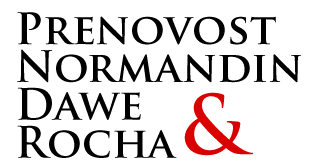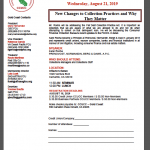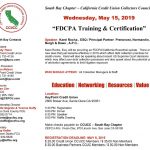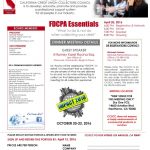PNDR May 2018 Newsletter
Legal Update
US SUPREME COURT RULES THAT EMPLOYERS MAY REQUIRE EMPLOYEES TO WAIVE CLASS-ACTION CLAIMS IN ARBITRATION AGREEMENTS
On May 21, 2018 the US Supreme Court issued a highly anticipated 5-4 opinion (written by Justice Neil Gorsuch) holding that employers may enforce individualized contractual arbitration proceedings to resolve employment disputes with their employees. In the case of Epic Systems Corp. v. Lewis, the US Supreme Court was called upon to decide whether employers could, under the Federal Arbitration Act (“FAA”) and the National Labor Relations Act (“NLRA”), legally bar its employees from engaging in collective arbitration of labor disputes.
The Court ultimately ruled that arbitration agreements requiring “individual” arbitration are enforceable under the FAA. The decision reversed the US Court of Appeals (7th Circuit) that had previously ruled against Epic Systems Corp. which had found against class action waivers.
Writing for the majority, Justice Gorsuch found that Congress had instructed through the FAA that arbitration agreements providing for individualized proceedings must be enforced, and neither the FAAÕs saving clause nor the NLRA suggested otherwise. The Court rejected the employees’ arguments that the subject arbitration agreements should not be enforced because they violated relevant provisions of the NLRA.
Instead, the Court found that the FAA requires courts to enforce arbitration agreements, including the terms of arbitration the parties selected (in this case, individualized arbitration). Citing a prior Supreme Court decision (AT&T Mobility v. Concepcion, 563 US 333) the Court further found that while a court may refuse to enforce arbitration agreements upon grounds such as fraud, duress, or unconscionability, it may not refuse to enforce them simply because they require individualized arbitration instead of class or collective proceedings.
While the important decision makes clear that class action waivers in arbitration agreements (under FAA) are valid, employees may still seek to invalidate those waivers by claiming fraud, duress or unconscionability. However, a carefully drafted arbitration agreement that includes a class action waiver will go a long way in minimizing litigation risk and exposure for employers with large groups of employees.
Our law firm is here to serve you. If you have any questions or issues concerning this case, or any other legal matter, please contact us and we will advise you and help with that matter.
The US Supreme Court decision can be found here: Epic Systems Corp. v. Lewis










